Muslim, Jewish and Christian women bond in choir
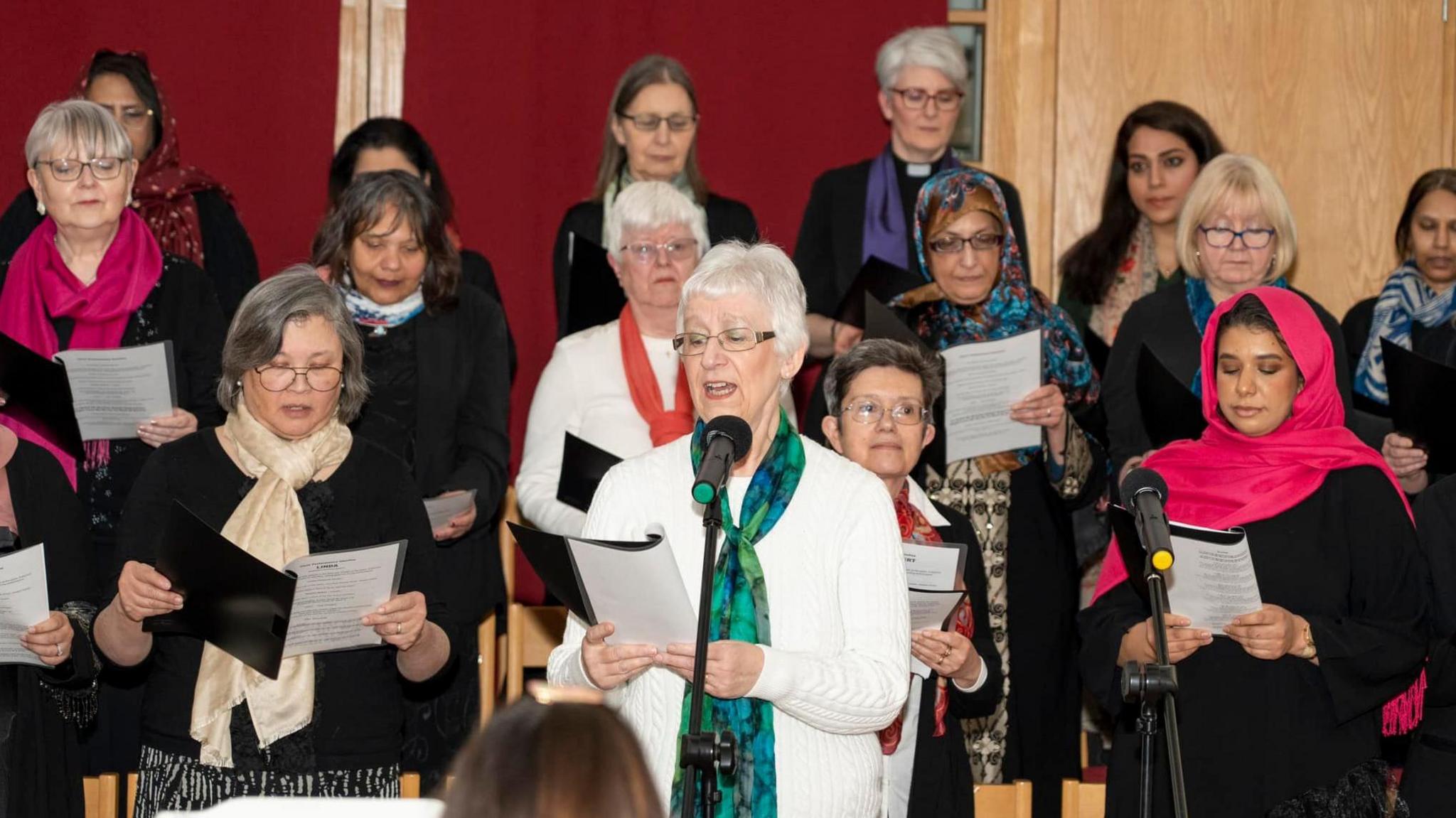
Trubys Abrahamic Women's Choir performs songs from Judaism, Islam and Christianity
- Published
Women from different religions have said that singing together in a choir has helped them gain new perspectives and “create bonds”.
Trubys Abrahamic Women's Choir has 30 members and performs songs from Judaism, Islam and Christianity.
The group will appear at an interfaith Ramadan event, The Great Get Together Iftar, on Sunday in Milton Keynes.
The choir's founder, Kurshida Mizra, said the group had also helped members to work through “the terrible, emotional" period surrounding the Israel-Gaza conflict.
"We’ve sat in a room together and managed to find words to talk about it, without ever feeling that we’re not loved by each other.
“It’s been much easier than you think because we came together accepting there is so much that unites us.
"We’re going through a terrible emotional time... but our group brings together women from these three different faiths," Ms Mirza said.
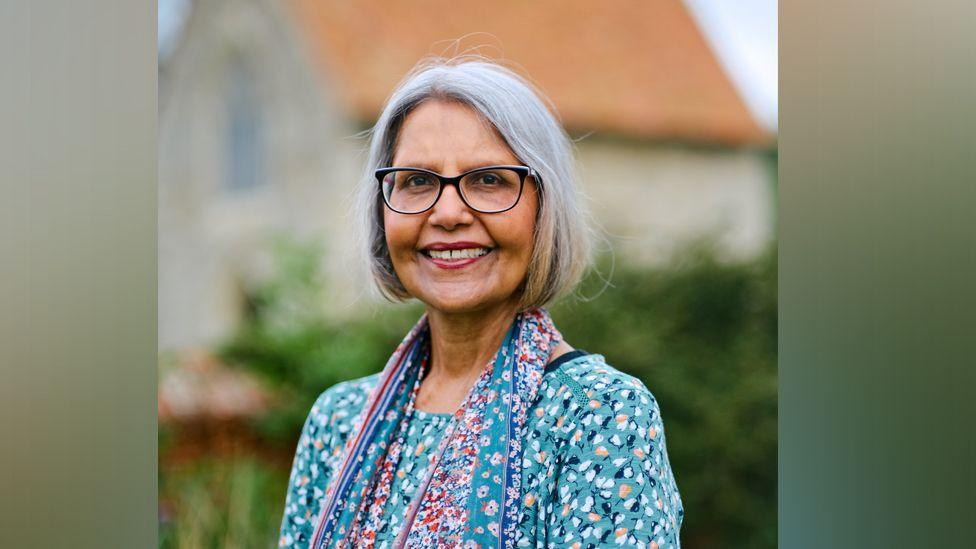
Kurshida Mirza started the choir to raise the profile of women of faith
Ms Mirza, who also set up the interfaith café Trubys Garden Tearoom in Milton Keynes, said she was inspired by early memories of attending Islamic Mawlid gatherings.
“I remember enjoying them very much and I learned a lot from the act of singing.
“In all of our religions there is a rich tradition of recitation and singing. If you recite the Quran, it’s very melodic,” she said.
The choir was initially funded to create a sound piece exploring women's spiritual experiences.
"Our voices are not heard in the faith setting, it’s a very male-dominated perspective," said Ms Mirza.
After the funding ended, the members wanted to continue the choir.
“They found it made them happy, they bonded, learned from each other’s perspectives. It created a lot of friendships.”
‘It’s uplifting’
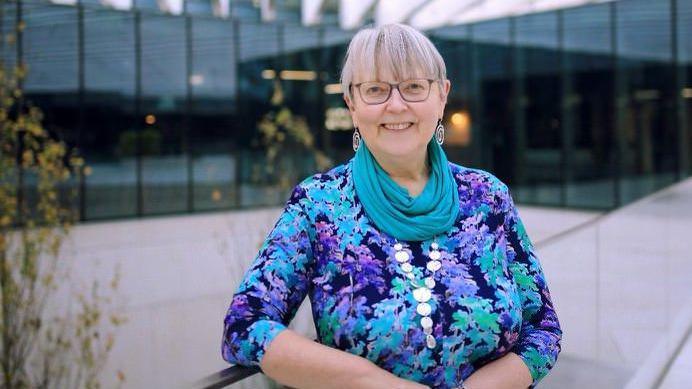
Gill Barstow says the choir brings a spiritual and emotional connection
Gill Barstow, 65, said she “absolutely loves singing”.
She attends the Church of Jesus Christ of Latter-day Saints and was “always very keen to find out about other religions and create unity”.
Ms Barstow said that at first, “it may seem the person is quite different – they have different practices or ways of worshipping”.
“But when you get under the surface, there is so much more that connects people of faith than difference. It's uplifting to meet another person who worships the same God I do, but in a different way,” she added.
Ms Barstow said she was “quite proud” of herself for managing to sing in Hebrew and Arabic.
She described “a sort of energy and cooperation” in the choir, as well as a spiritual connection.
“I often feel the spirit very strongly when I sing – sometimes I'm half way through a song and I feel like crying. A lot of songs are like poems and prayers really,” she said.
'Reconnecting my faith’
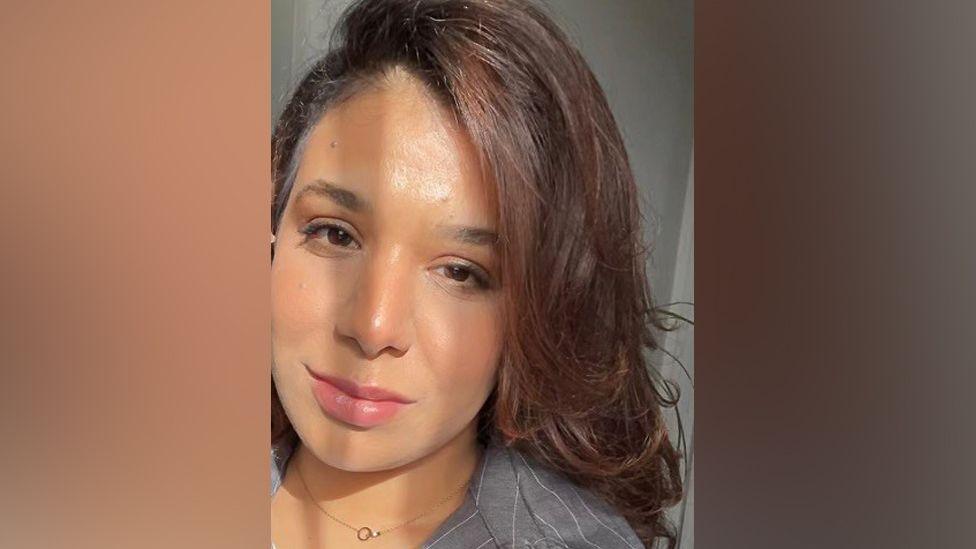
Asma Moustaoui was a professional Quran reciter in Morocco and says the choir helps her connect to her faith
Asma Moustaoui, 33, said belonging to the choir was “mentally, physically and spiritually beneficial”.
“It’s a breather to sit with women who share the same values and purpose,” she said.
Growing up as a Muslim in Morocco, singing was the norm.
“I grew up singing Burda and in women’s groups. I was a professional Quran reciter. It was a form of spiritual connectivity – with family, faith and women.”
But after moving to the UK, Ms Moustaoui said she felt “isolated” from that heritage, and started to "lose connection” with her faith.
So the women’s choir was “ideal”, and with her degree in linguistics, she has been able to translate and teach members how to sing in other languages.
“It's beautiful to see how many words are similar in the different languages. I've never sung in English before this.
“You learn from the others, you learn new ways to sing a song that you’ve done your whole life. People bring a different spirit to it,” she said.
‘It gives us hope’
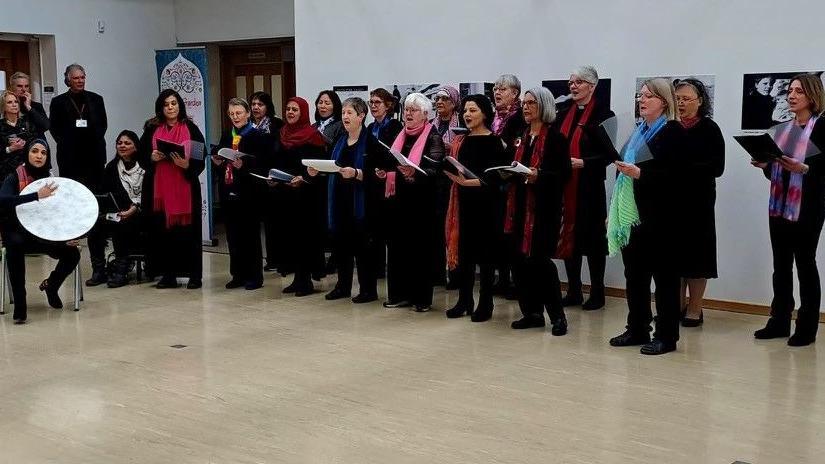
Lynda says singing songs of peace with people from other faiths brings her hope
Lynda Gilbert, 68, said the choir had helped her to “hang onto hope” in the face of the conflict in the Middle East.
Ms Gilbert, who is a member of the Milton Keynes and District Reform Synagogue, said it was “really important for Jewish women to stand alongside Christian and Muslim women and sing together for peace”.
“If we can come together and sing together, then it’s possible in the Middle East too. We can keep hold of that dream and it keeps us from feeling despair.”
She said that while some “divisiveness” had spilled over into British society, “in groups like ours we’re pushing back against that".
"We are forging bonds between women, but also between these three faiths that have so much in common with each other.
"We're not opposites, we’re all one, united.”
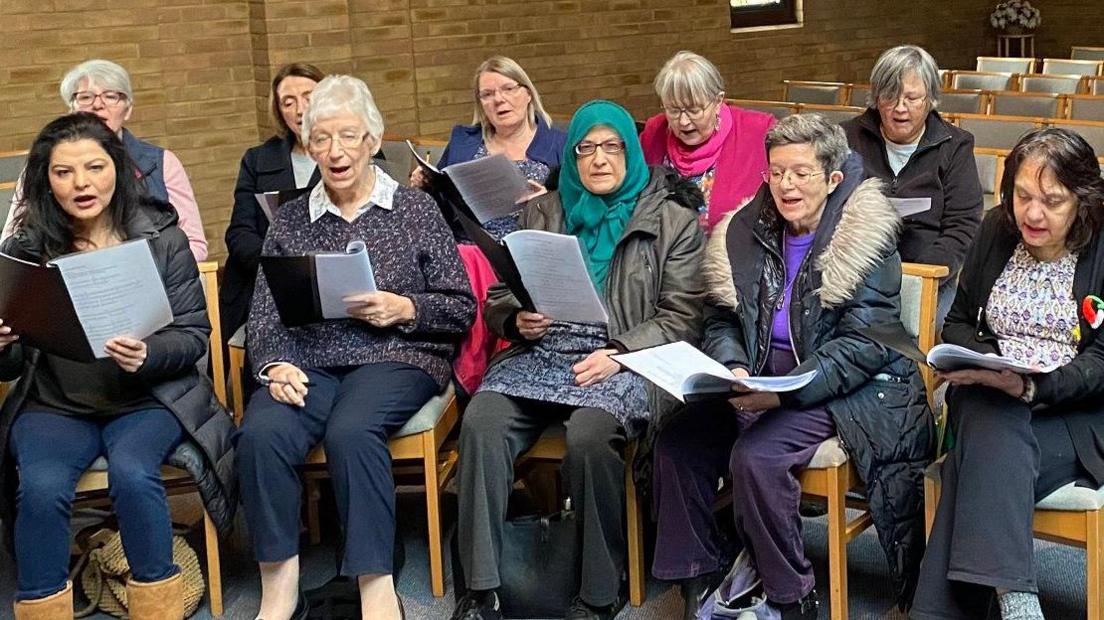
The group will appear at an interfaith Ramadan event in Milton Keynes on Sunday
Follow East of England news on Facebook, external, Instagram, external and X, external. Got a story? Email eastofenglandnews@bbc.co.uk, external or WhatsApp us on 0800 169 1830